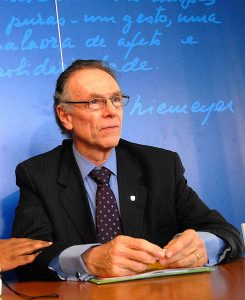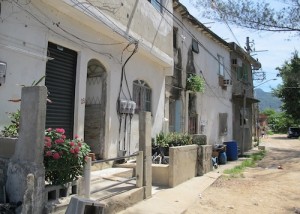Rio’s Olympic Legacy and Vila Autódromo
By Luke Milner, Contributing Reporter
RIO DE JANEIRO, BRAZIL – At the nineteenth session of the United Nations’ Human Rights Council in Geneva, Switzerland, on February 27, 2012, Carlos Arthur Nuzman, the President of the Rio 2016 Olympic and Paralymic Games Organizing Committee, spoke during a panel discussion on Sport and Human Rights. Nuzman emphasized transformation through sport and spoke of the legacy of the 2016 Olympic Games as both a future aim and an on-going challenge.

COB (Brazilian Olympic Committee) president Carlos Arthur Nuzman, photo by Wilson Dias/ABr.
The reality of creating an Olympic legacy is a familiar problem for the residents of Rio’s Vila Autódromo, a favela community neighboring the site of the future Olympic Park. The future of the favela, however, is far from certain, despite the fact that a 2013 demolition date was announced by the press in 2011.
Vila Autódromo is home to over 900 families and the favela’s residents are used to fighting for their communities survival, having already survived the threat of relocation in 1990 and again before the Pan American Games in 2007. Most recently, in January 2012, Vila Autódromo won a legal victory to suspend bids from private sector companies for the Public Private Partnership contract produced by the city of Rio de Janeiro in late 2011.
Obtaining the injunction to halt the bidding process was a strong symbolic victory for Vila Autódromo in a city where more than 8,000 families were resettled to make way for the Bus Rapid Transit system (BRT) between 2009 and 2011. However, the city has since been allowed to go ahead with the bidding process, with road widening rather than the Olympic Park being given as the reason why the favela must go.
“The judge faced intense pressure. She allowed the process to go forward despite the fact that all of the blueprints for the TransCarioca and TransOlimpica roadways show they clearly do not go past Vila Autódromo. Yet this was the excuse the city used which she allowed to pass.” According to the executive director of Catalytic Communities.
“The injunction was crucial as it delayed the process by two months and led to greater organization and media recognition. Maintaining this pressure could make a big difference to communities. Accountability is the other side of development.” She said.

Houses of Vila Autódromo, photo by Catalytic Communities.
While speaking last week in Geneva, Nuzman explained that the city’s government was committed to clear communication and dialogue with the families involved and that the resettlement policy is only carried out with judicial support.
Also present in Geneva was Maria do Rosario Nunes, Brazil’s Human Rights Minister. Nunes stated that the Brazilian Government wants the 2016 Games to be a success for Human Rights.
“The legacy of the Olympics and Paralympics are as important as the events themselves. For this reason, we want Games that are particularly successful from a Human Rights perspective,” the Minister added.
While the future of Vila Autódromo favela bordering the Olympic Park is uncertain, the tide of Rio’s development certainly moving forward. Bruno Reis, Managing Director of Exclusive Analysis’ Brazil office estimates direct investment for the 2016 Olympic Games are approximately R$30 billion between 2009-2016, with indirect investment estimated at R$90 billion.

No comments:
Post a Comment